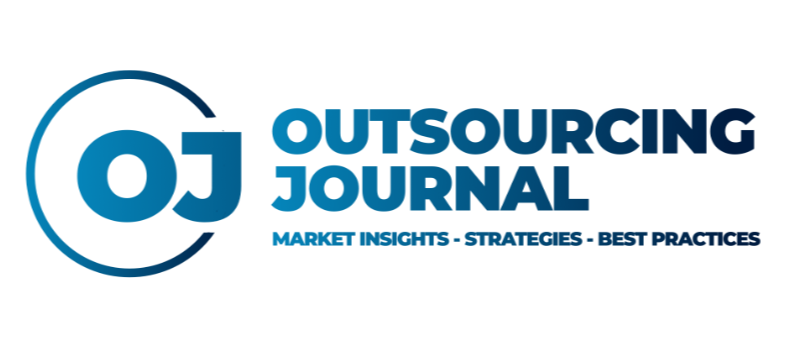By Richard Jeffery, co-founder of AOMi, UK – In recent years, more and more businesses have turned to partner organisations to provide cost-effective ways to manage key processes such as customer service, technical support, IT services and even sales, marketing and revenue generation. For providers however, getting this work – and keeping hold of it – increasingly requires a commitment to deliver or improve already high service levels, in some cases at a lower budget.
Looking back, it’s clear to see a major transition from large, all-encompassing cost-centric deals to a more mature market where customers demand more from their providers.
In terms of commercial shape, previous contracts were high cost, low margin at the front end (due to the cost of implementing technology and the need to adapt the operation), then high margin and lower cost at the back end. Today’s market is characterised by smaller contract terms. Educated buyers demand a higher level of service than can be delivered in-house and in many cases, this has culminated in reduction in deal size overall.
Increasingly, BPO providers are responding by slashing upfront costs, bypassing technology and using good operations management in its place. This enables them to slim down front-end budget and level off margins across the deal, rather than having to wait for what increasingly are smaller returns due to shorter contracts.
In real terms, the types of skills and value buyers are looking for varies from deal to deal. Typically, however, it will revolve around cost, improved service and quality of delivery. For the provider, profit tends to be achieved through performance improvement.
More recently, it has also concentrated on delivering the same service with fewer staff, using workflow and other technology, as well as the use of robotics for straight-through processing in areas such as finance and claims management.
There is also a broader mix of operators: large European and US-based firms are still going strong – especially in the field of technology – but there are now also plenty of big Indian organisations along with smaller, specialist boutique-style firms.
Large or small, to negotiate with today’s savvy buyers, all BPOs have to be on top of their game. This means being in a position to deliver the service at the level of quality required to keep the business. It also requires transparency over performance.
This also applies from an offshoring perspective: whereas previously, offshoring was largely about reducing labour costs, organisations are recognising that cheap labour is no longer enough – in many cases they also need to be efficient and highly-skilled.
Historically, operations management has been something of a Cinderella in the business world: individuals have risen through the ranks with no recognition of the new skills each role demands. Now, more BPOs are recognising the need for a professionalised project management approach to meet the requirements of demanding value-based projects. They are also putting more emphasis on developing internal employee skill sets to enable them to meet what continue to be ever tougher service level agreements.
Movement away from headcount and cost-oriented contracts to output or unit-based charging frameworks has also led to a huge shift in priority for many off-shore providers, making a trusted system of measuring output a critical requirement.
Many services are not easily reflected as a single unit which can be charged for but are a bundle of activities which in various combinations represent value. To overcome the challenge this creates in terms of delivery, organisations need the means to build these measures and then develop innovative and creative charging frameworks.
However, with limited end-to-end process visibility and the sometimes complex drivers of SLAs, many back office operations remain highly compartmentalised and have little resource flexibility, making resource capacity management almost impossible.
In fact, experience repeatedly shows that there is commonly 20% ‘latent capacity’ hidden in most BPO operations that have not adopted leading practices in back-office capacity management. With the need for efficiency savings crucial in the battle to win and retain business, organisations must therefore look at the workload holistically and at an organisation-wide level to better understand and forecast their workload and deploy capacity accordingly.
This is where the combination of back office workforce optimisation software with training, work and capacity management can be fundamental in changing the mindset of key internal stakeholders, as well as providing the necessary visibility required for effective change.
Critical to a lasting and mutually successful partnership is the confidence that the outsourcer is acting and managing in line with the objectives and goals of the client. Experience shows this is not something that can be determined at the outset during contract negotiations but comes through evolving confidence and experience based on operational transparency.
Increasing transparency internally also leads to renewed confidence externally. With a clear view of data such as work volumes, productivity, work in progress, as well as SLAs and quality statistics and visibility of management process (how the outsourcer uses the information to plan and allocate resources against the work priorities), the customer can have confidence not only in the outcomes but in the decision-making process that delivered the result.
This builds trust, resulting in fewer hard-line negotiations and even hostile confrontations. In their place are more constructive peer-to-peer dialogues that focus squarely on desired outcomes and delivery options.
About the author: AOMi co-founder Richard Jeffery is highly experienced at advising leading organisations on strategic operations management issues, outsourcing and business planning and control. As chief executive, he has overall responsibility for AOMi’s business development and has been instrumental in driving its continued growth, both in the UK and overseas. Prior to co-founding AOMi, Jeffery was a partner in the Organisation Consulting Partnership and has also held senior consulting roles at Coopers & Lybrand and PA Consulting Group. For more information, please visit www.activeops.com
This article was first published in the Outsourcing Journal Special Edition “The Future Edition”
